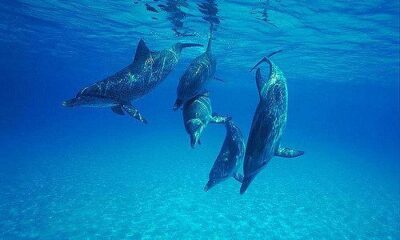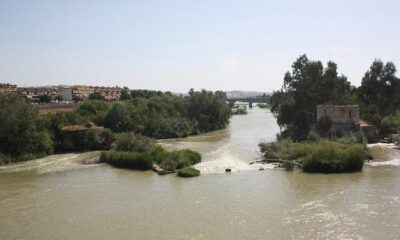

Environment
Human activity putting Australian dolphins at risk of localised extinction
Coastal development and other human activities are affecting two species of dolphins, the Australian snubfin and the Indo-Pacific humpback, forcing them to live in isolated groups with limited genetic diversity, a new study has shown.
The two little-known species, found off the western Australia coast, are said to be suffering from activities such as dredging, construction and shipping.
A study published in the journal PLOS ONE observed individuals from both species and found they live in small isolated groups with low levels of gene flow, meaning they can easily be affected by human activities and are more vulnerable to environmental change and localised extinction.
Human coastal activities also mean that the animals cannot travel easily to breed, therefore further limiting their genetic diversity. Scientists also found that the hybridisation of snubfin and humpback dolphins can occur.
Lead researcher from Murdoch University, Alex Brown, said, “We would urge management authorities to look at the research and think about it when assessing the environmental impact of projects and dredging.
“Although they may not find a lot of these dolphins in the immediate location of where there are plans to build a coastal development or port, they need to consider that the area may be an important migration route.”
Brown added, “Snubfin and humpback dolphins are often found in the same locations and aggressive and sexual interactions have been recorded previously between the two species.
“This might be a result of living in small, isolated populations and a consequent lack of same-species breeding opportunities.”
Photo: Teddy Fotiou via Flickr
 Further reading:
Further reading:
Japan receives widespread condemnation for plans to resume whaling
Should I stay or should I go? The environmental tourist’s travel dilemma
Ecotourism flourishes when local people are engaged with sustainability
US diplomat condemns dolphin slaughter in Japan
Sustainable investment as a solution to the world’s ocean crisis


 Environment12 months ago
Environment12 months agoAre Polymer Banknotes: an Eco-Friendly Trend or a Groundswell?

 Features11 months ago
Features11 months agoEco-Friendly Cryptocurrencies: Sustainable Investment Choices

 Features12 months ago
Features12 months agoEco-Friendly Crypto Traders Must Find the Right Exchange

 Energy11 months ago
Energy11 months agoThe Growing Role of Solar Panels in Ireland’s Energy Future





























